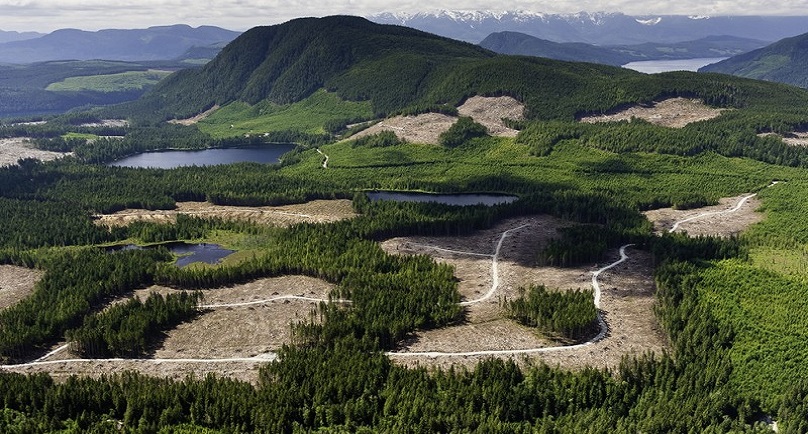By Julie Gordon
VANCOUVER (Reuters) – Brit’sh Columbia on Monday unveiled a historic agreement to protect a massive swath of rainforest along its coastline, having reached a deal that marries the interests of First Nations, the logging industry and environmentalists after a decade of often-tense negotiations.
Under the agreement, about 85 percent of forest within the Great Bear Rainforest would be protected, with the other 15 percent available for logging under the “most stringent” standards in North America, environmental groups involved in the talks said.
The Great Bear Rainforest is one of the world’s largest temperate rainforests and the habitat of the Spirit Bear, a rare subspecies of the black bear with white fur and claws. It is also home to 26 Aboriginal groups, known as First Nations.
“The Great Bear Rainforest, there’s no question, it’s a jewel in the crown of magnificent landscapes in Brit’sh Columbia,” Premier Christy Clark said at an event on Monday.
She added that the “landmark agreement” would protect more old and second growth forest, while still ensuring economic opportunities for local Aboriginals and communities. The province is expected to enshrine the new measures into law in the spring.
The Great Bear rainforest, which includes forests, waterways and mountains, covers 6.4 million hectares of the province’s coast. More than half its surface is forest, including 2.3 million hectares of old growth, which stores high levels of captured carbon.
In the 1990s, frustrated over what they saw as destructive forestry practices on their traditional lands, First Nations partnered with environmentalists to fight back against logging companies, blockading roads and protesting.
By the early 2000s, environmental groups and industry players, including Interfor Corp, Western Forest Products Inc and Catalyst Paper Corp, had started talks. At the same time, the government began negotiating with the Coastal First Nations and Nanwakolas Council.
The final agreements, reached more than a decade later, “will deliver certainty for coastal forests, local communities and jobs for years to come,” Rick Jeffery, chief executive of industry advocate Coast Forest Products Association, said in a statement.
The deal would also end of the commercial grizzly bear hunt within Coastal First Nations territories, though other existing tourism-related businesses will not be affected.
“Our leaders understand our wellbeing is connected to the wellbeing of our lands and waters,” said Chief Marilyn Slett, president of Coastal First Nations.
“If we use our knowledge and our wisdom to look after our lands and waters and communities, they will look after us into the future.”
The announcement comes nearly two years after a landmark Supreme Court decision that granted title to a vast swath of Brit’sh Columbia’s interior to the Tsilhqot’in First Nations, who had gone to court to stop logging in their traditional lands.
That decision has bolstered First Nations across the province, who now have a legal precedent for fighting development on their territories.
(Reporting by Julie Gordon; Editing by Bruce Wallace, Michael Perry and Richard Chang)
Copyright 2015 Thomson Reuters. Click for Restrictions.


